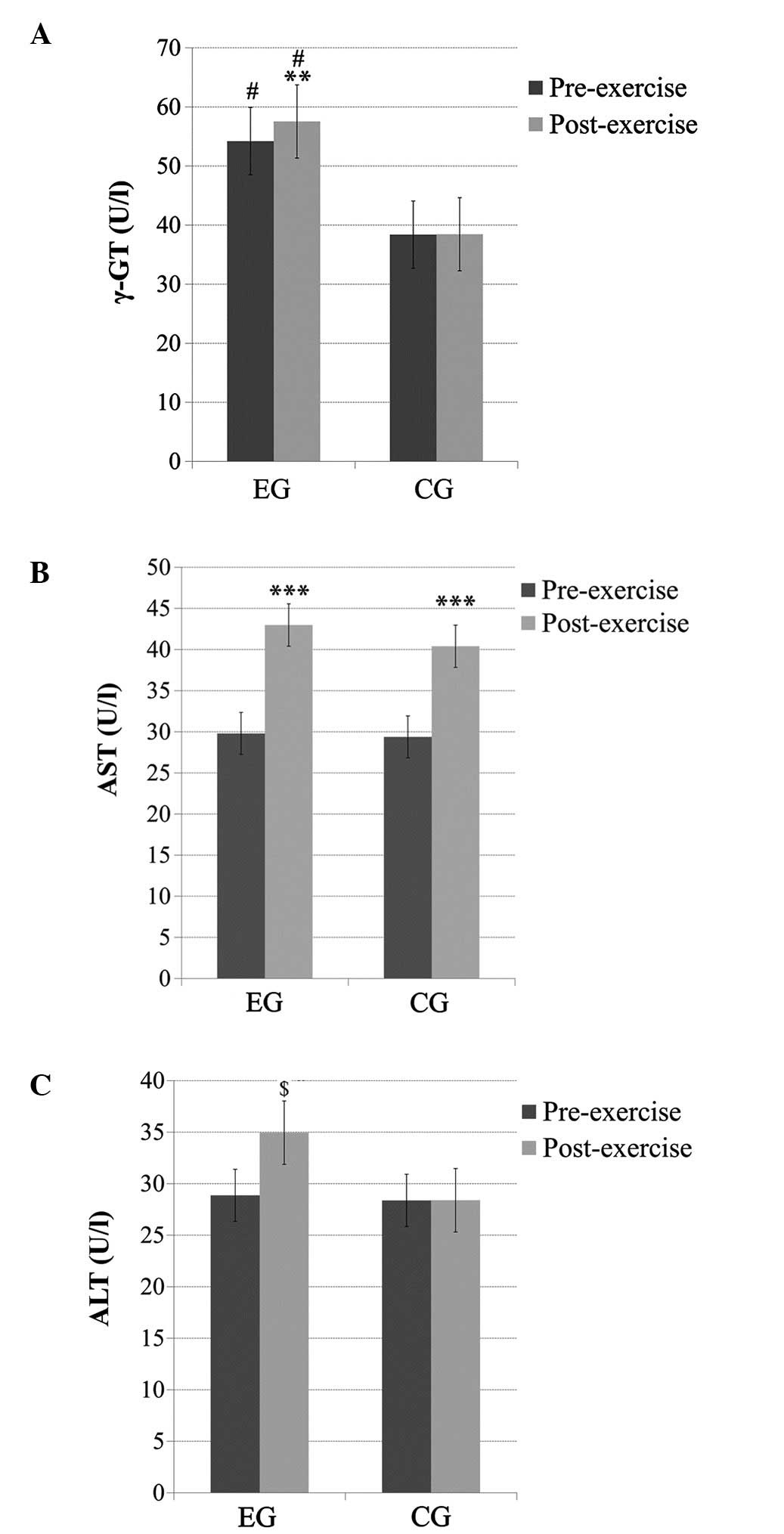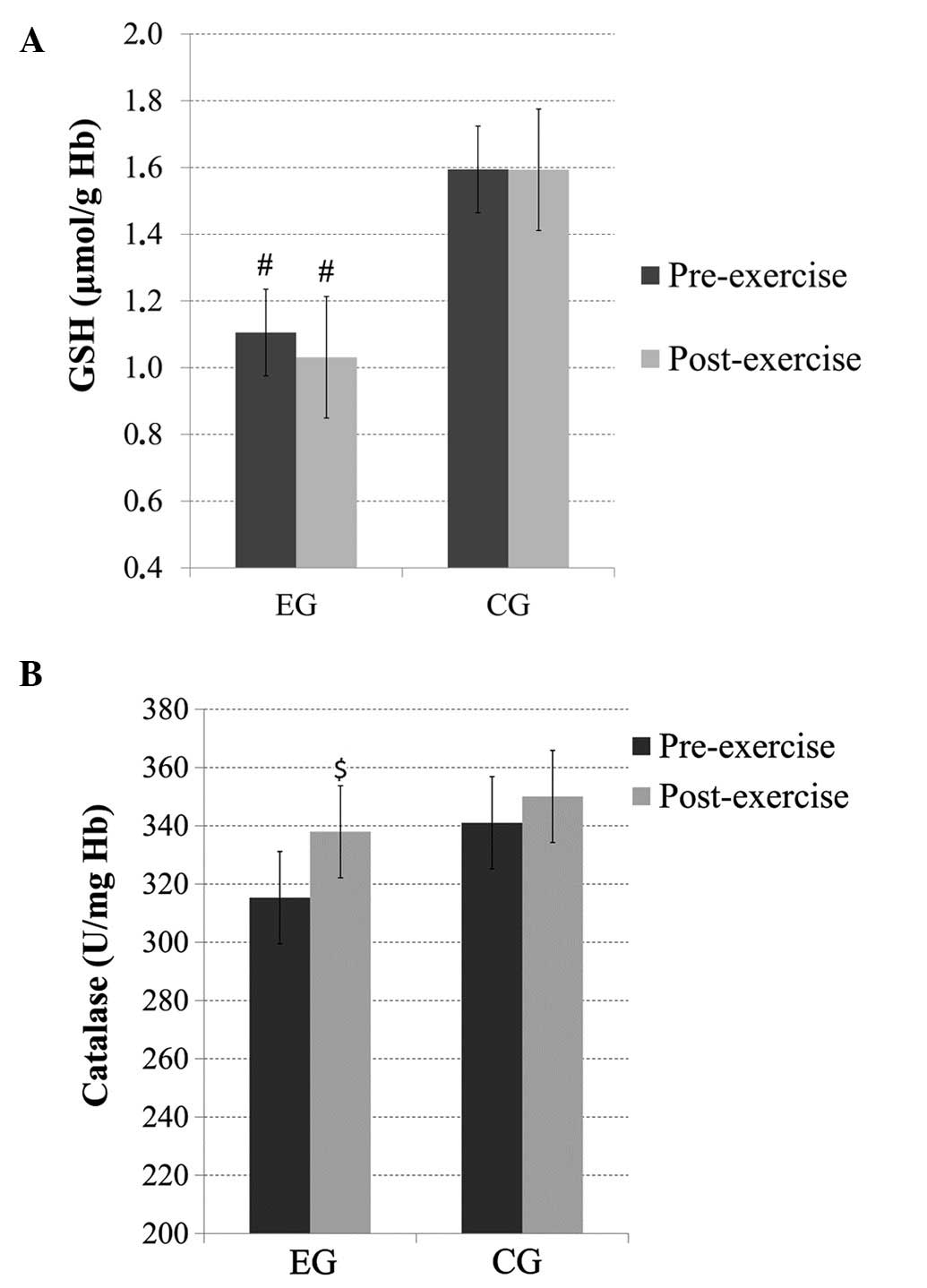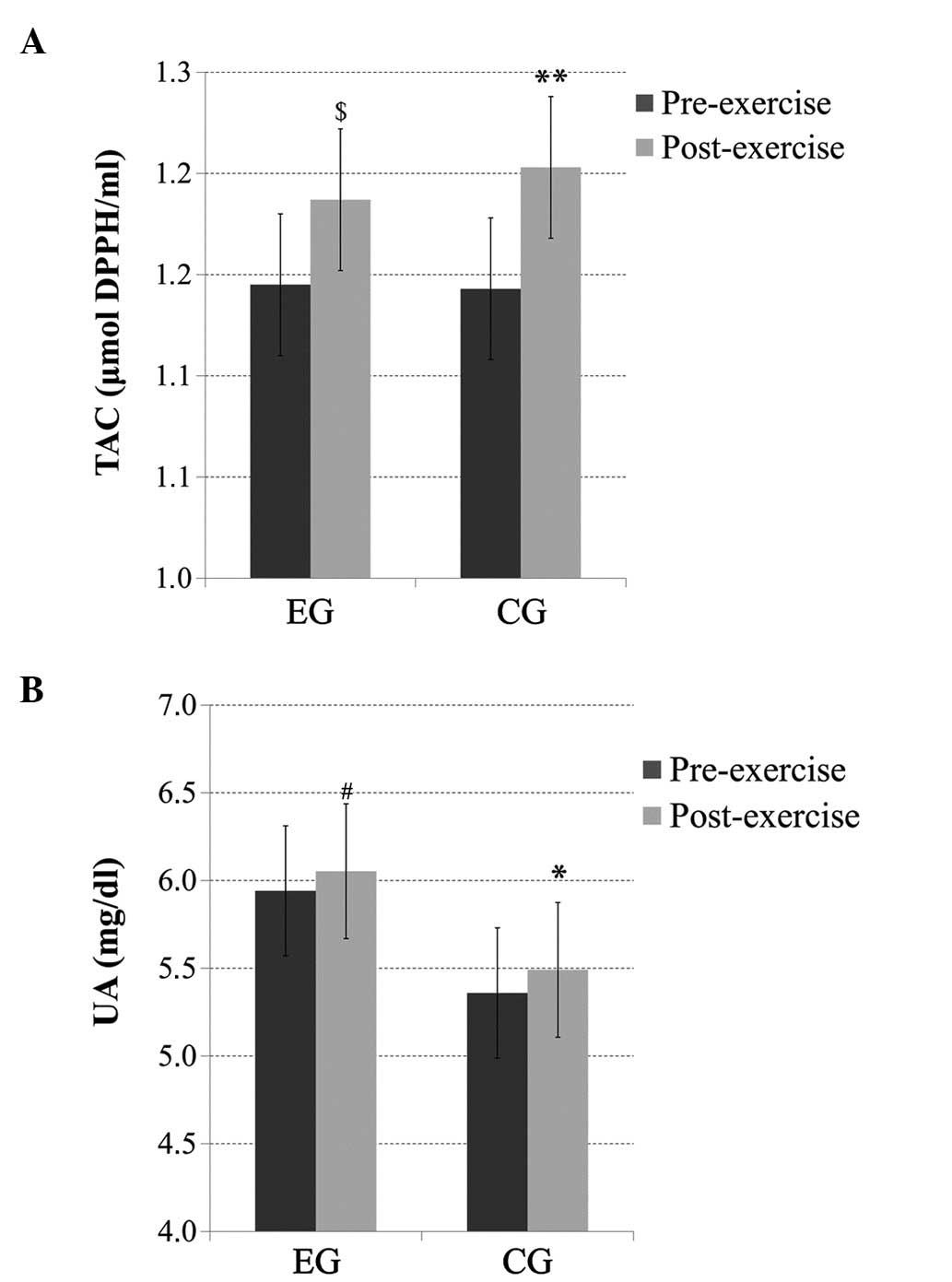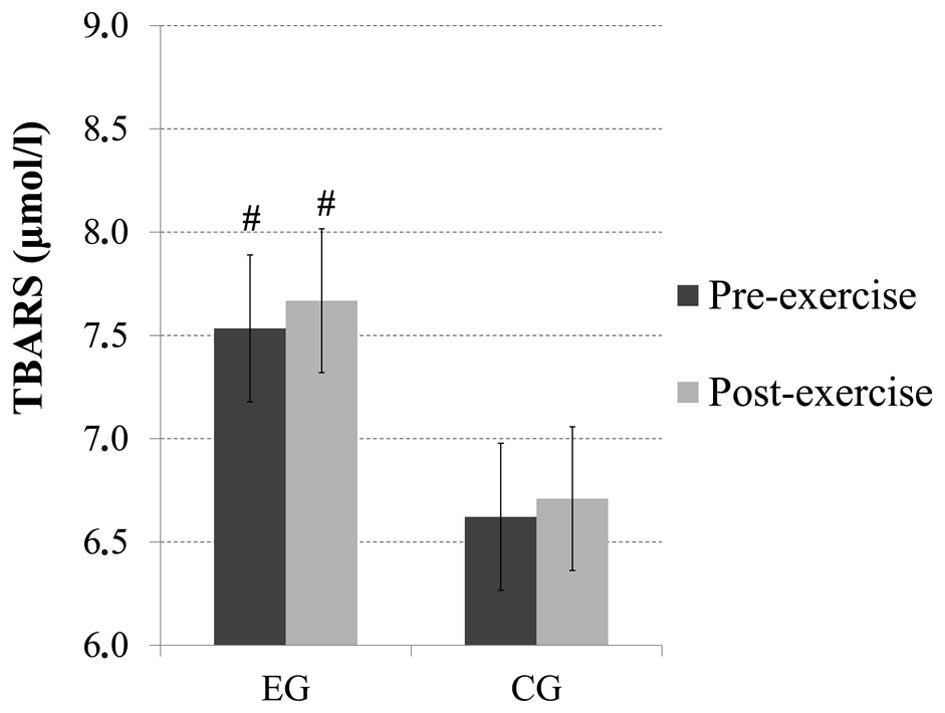|
1
|
Brien SE, Ronksley PE, Turner BJ, Mukamal
KJ and Ghali WA: Effect of alcohol consumption on biological
markers associated with risk of coronary heart disease: systematic
review and meta-analysis of interventional studies. BMJ.
342:d6362011. View
Article : Google Scholar : PubMed/NCBI
|
|
2
|
Ronksley PE, Brien SE, Turner BJ, Mukamal
KJ and Ghali WA: Association of alcohol consumption with selected
cardiovascular disease outcomes: a systematic review and
meta-analysis. BMJ. 342:d6712011. View
Article : Google Scholar : PubMed/NCBI
|
|
3
|
National Institute for Alcohol Abuse and
Alcoholism: Drinking Levels Defined. http://www.niaaa.nih.gov/alcohol-health/overview-alcohol-consumption-moderate-binge-drinkingRetrieved.
Jan 10–2014.
|
|
4
|
Greenfield TK, Ye Y, Bond J, Kerr WC,
Nayak MB, Kaskutas LA, Anton RF, Litten RZ and Kranzler HR: Risks
of alcohol use disorders related to drinking patterns in the U.S.
general population. J Stud Alcohol Drugs. 75:319–327. 2014.
View Article : Google Scholar : PubMed/NCBI
|
|
5
|
Sies H and Jones D: Oxidative stress.
Encyclopedia of Stress. Fink G: 3:(2nd). (Amsterdam). Elsevier.
45–48. 2007. View Article : Google Scholar
|
|
6
|
Das SK and Vasudevan DM: Alcohol-induced
oxidative stress. Life Sci. 81:177–187. 2007. View Article : Google Scholar : PubMed/NCBI
|
|
7
|
Zima T and Kalousová M: Oxidative stress
and signal transduction pathways in alcoholic liver disease.
Alcohol Clin Exp Res. 29(Suppl 11): 110S–115S. 2005. View Article : Google Scholar : PubMed/NCBI
|
|
8
|
Tsukamoto H and Lu SC: Current concepts in
the pathogenesis of alcoholic liver injury. FASEB J. 15:1335–1349.
2001. View Article : Google Scholar : PubMed/NCBI
|
|
9
|
Davies KJ, Quintanilha AT, Brooks GA and
Packer L: Free radicals and tissue damage produced by exercise.
Biochem Biophys Res Commun. 107:1198–1205. 1982. View Article : Google Scholar : PubMed/NCBI
|
|
10
|
Finaud J, Lac G and Filaire E: Oxidative
stress: relationship with exercise and training. Sports Med.
36:327–358. 2006. View Article : Google Scholar : PubMed/NCBI
|
|
11
|
Coffey VG and Hawley JA: The molecular
bases of training adaptation. Sports Med. 37:737–763. 2007.
View Article : Google Scholar : PubMed/NCBI
|
|
12
|
Michailidis Y, Jamurtas AZ, Nikolaidis MG,
Fatouros IG, Koutedakis Y, Papassotiriou I and Kouretas D: Sampling
time is crucial for measurement of aerobic exercise-induced
oxidative stress. Med Sci Sports Exerc. 39:1107–1113. 2007.
View Article : Google Scholar : PubMed/NCBI
|
|
13
|
Steinbacher P and Eckl P: Impact of
oxidative stress on exercising skeletal muscle. Biomolecules.
5:356–377. 2015. View Article : Google Scholar : PubMed/NCBI
|
|
14
|
Read JP and Brown RA: The role of physical
exercise in alcoholism treatment and recovery. Prof Psychol Res
Pract. 34:49–56. 2003. View Article : Google Scholar
|
|
15
|
Zschucke E, Heinz A and Ströhle A:
Exercise and physical activity in the therapy of substance use
disorders. ScientificWorldJournal. 2012:9017412012. View Article : Google Scholar : PubMed/NCBI
|
|
16
|
Giesen ES, Deimel H and Bloch W: Clinical
exercise interventions in alcohol use disorders: a systematic
review. J Subst Abuse Treat. 52:1–9. 2015. View Article : Google Scholar : PubMed/NCBI
|
|
17
|
Jamurtas AZ, Zourbanos N, Georgakouli K,
Georgoulias P, Manthou E, Fatouros IG, Goudas M, Koutedakis Y and
Theodorakis Y: Beta endorphin and alcohol urge responses in
alcoholic patients following an acute bout of exercise. J Addict
Res Ther. 5:10001942014.
|
|
18
|
Goldfarb AH and Jamurtas AZ:
Beta-endorphin response to exercise. An update. Sports Med.
24:8–16. 1997. View Article : Google Scholar : PubMed/NCBI
|
|
19
|
Gianoulakis C: Endogenous opioids and
addiction to alcohol and other drugs of abuse. Curr Top Med Chem.
4:39–50. 2004. View Article : Google Scholar : PubMed/NCBI
|
|
20
|
Moussas G, Dadouti G, Douzenis A, Poulis
E, Tzelembis A, Bratis D, Christodoulou C and Lykouras L: The
Alcohol Use Disorders Identification Test (AUDIT): reliability and
validity of the Greek version. Ann Gen Psychiatry. 8:112009.
View Article : Google Scholar : PubMed/NCBI
|
|
21
|
World Health Organization: The Alcohol Use
Disorders Identification Test: Guidelines for Use in Primare Care
(2nd). Geneva: WHO Press. 2001.
|
|
22
|
Janaszewska A and Bartosz G: Assay of
total antioxidant capacity: comparison of four methods as applied
to human blood plasma. Scand J Clin Lab Invest. 62:231–236. 2002.
View Article : Google Scholar : PubMed/NCBI
|
|
23
|
Keles MS, Taysi S, Sen N, Aksoy H and
Akçay F: Effect of corticosteroid therapy on serum and CSF
malondialdehyde and antioxidant proteins in multiple sclerosis. Can
J Neurol Sci. 28:141–143. 2001.PubMed/NCBI
|
|
24
|
Patsoukis N, Zervoudakis G, Panagopoulos
NT, Georgiou CD, Angelatou F and Matsokis NA: Thiol redox state
(TRS) and oxidative stress in the mouse hippocampus after
pentylenetetrazol-induced epileptic seizure. Neurosci Lett.
357:83–86. 2004. View Article : Google Scholar : PubMed/NCBI
|
|
25
|
Aebi H: Catalase in vitro. Methods
Enzymol. 105:121–126. 1984. View Article : Google Scholar : PubMed/NCBI
|
|
26
|
Reddy YN, Murthy SV, Krishna DR and
Prabhakar M: Role of free radicals and antioxidants in tuberculosis
patients. Indian J Tuberc. 51:213–218. 2004.
|
|
27
|
Whitehead TP, Robinson D and Allaway SL:
The effects of cigarette smoking and alcohol consumption on serum
liver enzyme activities: a dose-related study in men. Ann Clin
Biochem. 33:530–535. 1996. View Article : Google Scholar : PubMed/NCBI
|
|
28
|
Banfi G, Colombini A, Lombardi G and
Lubkowska A: Metabolic markers in sports medicine. Adv Clin Chem.
56:1–54. 2012. View Article : Google Scholar : PubMed/NCBI
|
|
29
|
Robinson D and Whitehead TP: Effect of
body mass and other factors on serum liver enzyme levels in men
attending for well population screening. Ann Clin Biochem.
26:393–400. 1989. View Article : Google Scholar : PubMed/NCBI
|
|
30
|
Halonen PI and Konttinen A: Effect of
physical exercise on some enzymes in the serum. Nature.
193:942–944. 1962. View Article : Google Scholar : PubMed/NCBI
|
|
31
|
Parikh DJ and Ramanathan NL: Exercise
induced serum enzyme changes in untrained subjects. Indian J
Physiol Pharmacol. 21:175–180. 1977.PubMed/NCBI
|
|
32
|
Fibach E and Rachmilewitz E: The role of
oxidative stress in hemolytic anemia. Curr Mol Med. 8:609–619.
2008. View Article : Google Scholar : PubMed/NCBI
|
|
33
|
Cho J, Lee I, Kim D, Koh Y, Kong J, Lee S
and Kang H: Effect of aerobic exercise training on non-alcoholic
fatty liver disease induced by a high fat diet in C57BL/6 mice. J
Exerc Nutrition Biochem. 18:339–346. 2014. View Article : Google Scholar : PubMed/NCBI
|
|
34
|
Keating SE, Hackett DA, Parker HM,
O'Connor HT, Gerofi JA, Sainsbury A, Baker MK, Chuter VH, Caterson
ID, George J and Johnson NA: Effect of aerobic exercise training
dose on liver fat and visceral adiposity. J Hepatol. 63:174–182.
2015. View Article : Google Scholar : PubMed/NCBI
|
|
35
|
Tseng YM, Tsai SM, Lin CC, Jin YR, Yeh WH,
Hsiao JK, Chen CF, Lan WH and Tsai LY: Oxidative stress-related
enzyme polymorphisms associated with the immunological biomarkers
levels in heavy drinkers in Taiwan. J Clin Lab Anal. 27:494–503.
2013. View Article : Google Scholar : PubMed/NCBI
|
|
36
|
Loguercio C, Blanco FD, De Girolamo V,
Disalvo D, Nardi G, Parente A and Blanco CD: Ethanol consumption,
amino acid and glutathione blood levels in patients with and
without chronic liver disease. Alcohol Clin Exp Res. 23:1780–1784.
1999. View Article : Google Scholar : PubMed/NCBI
|
|
37
|
Maithreyi R, Janani AV, Krishna R, Shweta
A, Edwin RR and Mohan SK: Erythrocyte lipid peroxidation and
antioxidants in chronic alcoholics with alcoholic liver disease.
Asian J Pharm Clin Res. 3:183–185. 2010.
|
|
38
|
Gupta S, Pandey R, Katyal R, Aggarwal HK,
Aggarwal RP and Aggarwal SK: Lipid peroxide levels and antioxidant
status in alcoholic liver disease. Indian J Clin Biochem. 20:67–71.
2005. View Article : Google Scholar : PubMed/NCBI
|
|
39
|
Meister A: Mitochondrial changes
associated with glutathione deficiency. Biochim Biophys Acta.
1271:35–42. 1995. View Article : Google Scholar : PubMed/NCBI
|
|
40
|
Viña J, Estrela JM, Guerri C and Romero
FJ: Effect of ethanol on glutathione concentration in isolated
hepatocytes. Biochem J. 188:549–552. 1980. View Article : Google Scholar : PubMed/NCBI
|
|
41
|
Fernández-Checa JC, García-Ruiz C, Colell
A, Morales A, Marí M, Miranda M and Ardite E: Oxidative stress:
role of mitochondria and protection by glutathione. Biofactors.
8:7–11. 1998. View Article : Google Scholar : PubMed/NCBI
|
|
42
|
Han D, Hanawa N, Saberi B and Kaplowitz N:
Mechanisms of liver injury. III. Role of glutathione redox status
in liver injury. Am J Physiol Gastrointest Liver Physiol.
291:G1–G7. 2006. View Article : Google Scholar : PubMed/NCBI
|
|
43
|
Barden A, Zilkens RR, Croft K, Mori T,
Burke V, Beilin LJ and Puddey IB: A reduction in alcohol
consumption is associated with reduced plasma F2-isoprostanes and
urinary 20-HETE excretion in men. Free Radic Biol Med.
42:1730–1735. 2007. View Article : Google Scholar : PubMed/NCBI
|
|
44
|
Lubin B and Chiu D: Properties of vitamin
E-deficient erythrocytes following peroxidant injury. Pediatr Res.
16:928–932. 1982. View Article : Google Scholar : PubMed/NCBI
|


















